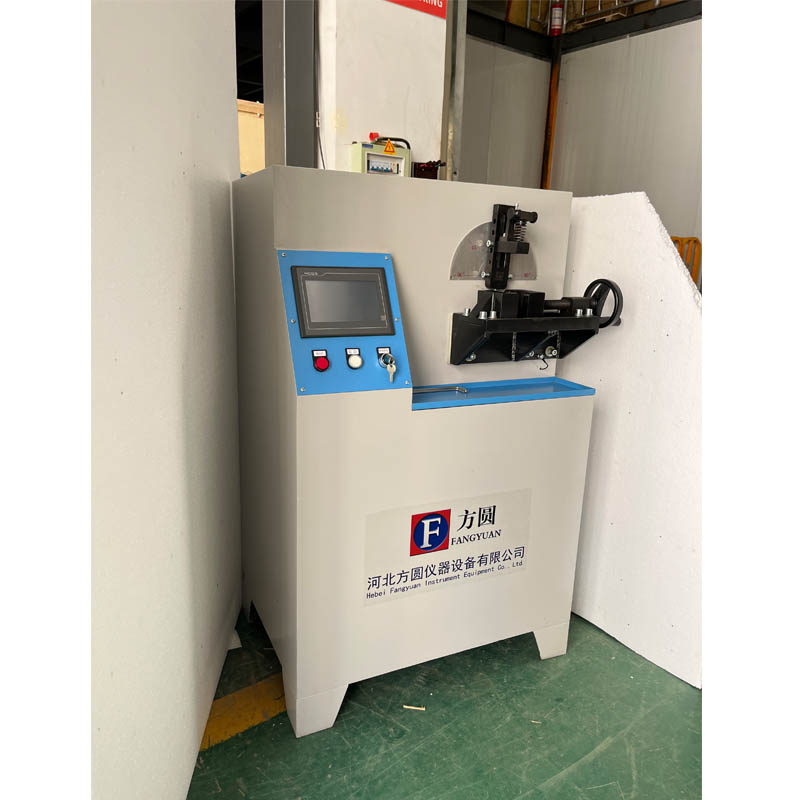Conductor Resistance Testing Equipment for Electrical Systems and Components Analysis
Understanding Conductor Resistance Test Machines
In the realm of electrical engineering, ensuring the efficient performance of conductive materials is paramount. One crucial aspect of this is measuring the resistance of conductors, which is vital for the safe and effective operation of electrical systems. This is where a conductor resistance test machine comes into play, a specialized device designed to evaluate the resistive properties of electrical conductors accurately.
The Importance of Measuring Conductor Resistance
Conductor resistance is a critical parameter that affects the overall efficiency of electrical circuits. High resistance can lead to excessive heat generation, energy losses, and even system failures. Therefore, routine testing of conductors is essential to prevent issues related to overheating and to ensure compliance with various electrical standards. By understanding the resistance characteristics of conductors used in various applications, engineers can make informed decisions regarding material selection, installation, and maintenance.
Overview of Conductor Resistance Test Machines
Conductor resistance test machines are sophisticated devices that apply a known current through a conductor while measuring the resulting voltage drop. By using Ohm's Law (V = IR), the resistance can be calculated. These machines are designed to handle different types of conductors, including copper, aluminum, and various alloys. They typically feature advanced circuitry to provide accurate measurements, eliminating noise and other interferences that may distort results.
Key Features of Conductor Resistance Test Machines
1. High Precision Measurements Modern test machines are equipped with highly sensitive instruments to ensure precise resistance measurements. This allows for accurate assessments, even for very low resistance values that are typical in high-quality conductors used in industrial applications.
2. User-Friendly Interface Many machines come with intuitive interfaces, allowing operators to easily set parameters and interpret results. This enhances usability, making it accessible for technicians of all experience levels.
conductor resistance test machine

3. Data Logging and Analysis Advanced conductor resistance test machines often include data logging capabilities. This enables users to store and analyze test results over time, facilitating trending analysis and helping to identify potential issues before they escalate.
4. Portable Models For field testing, portable conductor resistance test machines are available. These compact devices maintain performance integrity while offering convenience, allowing technicians to perform tests directly on-site.
5. Compliance with Standards Most machines are built to comply with nationally and internationally recognized standards, ensuring reliability and acceptance across various industries.
Applications of Conductor Resistance Test Machines
Conductor resistance tests are vital in numerous applications across different sectors. In the utility industry, they are used to assess overhead and underground cables, ensuring that transmission losses are minimized. In industrial settings, testing helps maintain the integrity of electrical connections and transformers, ensuring safety and efficiency.
In addition, these machines find uses in research and development, where new materials or conductor designs are evaluated. They assist in quality control by verifying that the manufactured conductors meet specified resistance criteria.
Conclusion
Conductor resistance test machines are essential tools in ensuring the reliability and efficiency of electrical systems. By understanding and measuring the resistance of conductors, engineers and technicians can prevent failures, improve energy efficiency, and enhance the overall safety of electrical installations. Investing in quality testing equipment is crucial for any organization that relies on electrical systems, highlighting the importance of these machines in the modern electrical engineering landscape. As technology continues to evolve, so too will the capabilities of conductor resistance test machines, further enhancing our ability to ensure optimal performance in electrical systems.
-
Why the Conductor Resistance Constant Temperature Measurement Machine Redefines Precision
NewsJun.20,2025
-
Reliable Testing Starts Here: Why the High Insulation Resistance Measuring Instrument Is a Must-Have
NewsJun.20,2025
-
Flexible Cable Flexing Test Equipment: The Precision Standard for Cable Durability and Performance Testing
NewsJun.20,2025
-
Digital Measurement Projector: Precision Visualization for Modern Manufacturing
NewsJun.20,2025
-
Computer Control Electronic Tensile Tester: Precision and Power for the Modern Metal Industry
NewsJun.20,2025
-
Cable Spark Tester: Your Ultimate Insulation Assurance for Wire and Cable Testing
NewsJun.20,2025
 Copyright © 2025 Hebei Fangyuan Instrument & Equipment Co.,Ltd. All Rights Reserved. Sitemap | Privacy Policy
Copyright © 2025 Hebei Fangyuan Instrument & Equipment Co.,Ltd. All Rights Reserved. Sitemap | Privacy Policy
